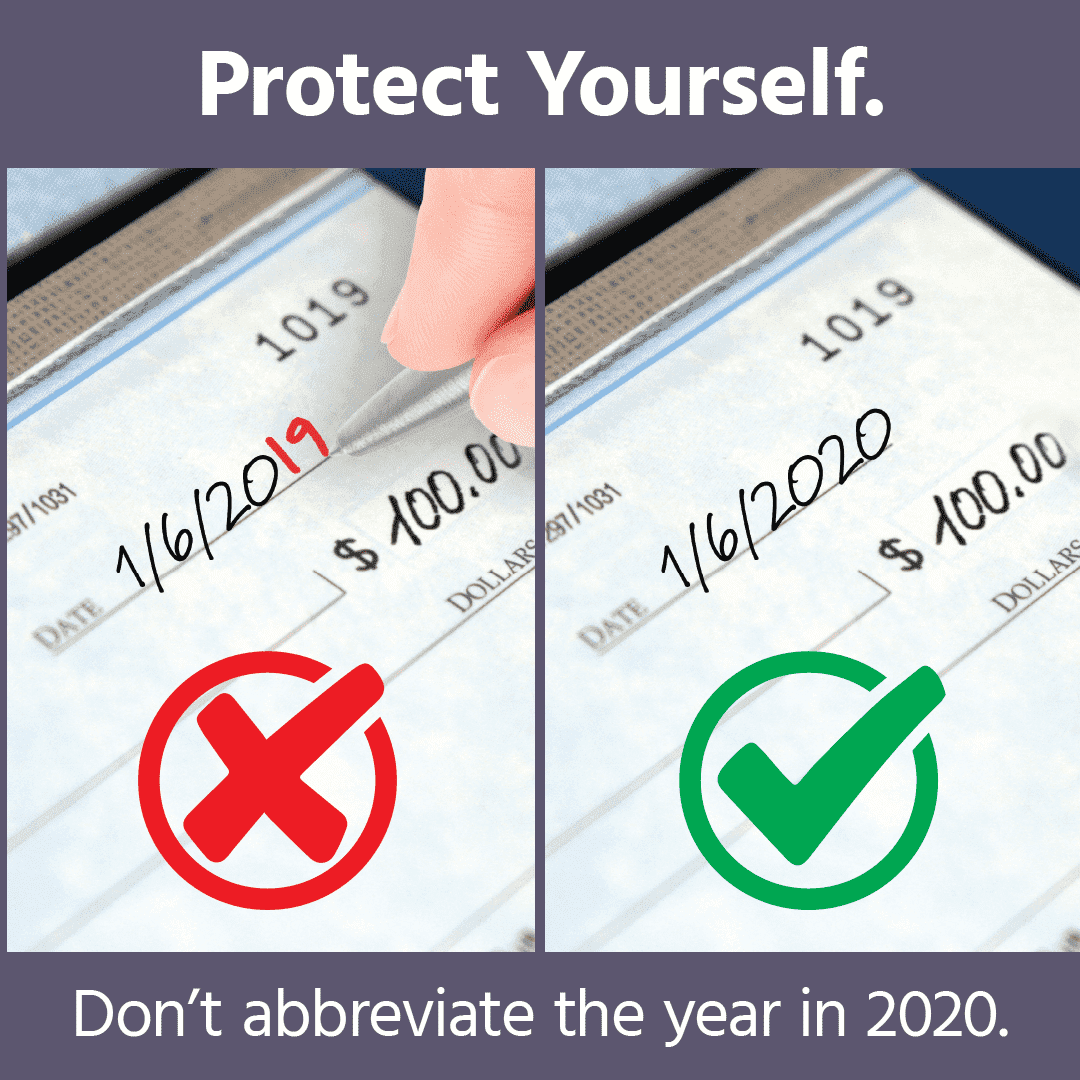 Whether filling out a form or writing a check, we often abbreviate the date numerically. For example, December 31, 2019 becomes 12/31/19.
Whether filling out a form or writing a check, we often abbreviate the date numerically. For example, December 31, 2019 becomes 12/31/19.
However, as we move into 2020, you should avoid abbreviating the year on any important document because of the possibility of tampering.
Take, for example, someone who signs a lease or other time-sensitive document which establishes their rights and obligations for a period of time. If they sign and date 1/6/20, someone could later plug in 19, 18, 17, etc. (1/6/2019) at the end to change the effective date of the document and the duration of the obligation. In that regard, 1/6/2020 would be the advisable way to write the date.
The same practice should apply to check writing for recurring payments.
If you’re writing checks monthly to pay off a debt, you’ll want to make sure you’re writing the full date out as 2020 to avoid the payee tampering with the date after the fact, making it appear as if you made no payments in 2020.
If it seems like an inconvenience, think about the problems you or your business could run into if you do not take this extra step. According to a study by the Association of Certified Fraud Examiners, the median loss for a victim of fraud is $150,000.
And, after all, it’s just for a year. No such problems will exist in 2021.
If you are in need of legal counsel, contact one of our attorneys.

